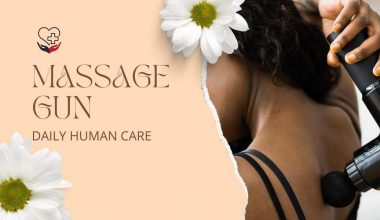This post by Daily Human Care is all about the vitamins required for the optimal skin health.
Table of Contents
Why The Optimal Skin Health Requires Vitamins?
Deficiencies in vitamins, which are necessary for proper physiological performance, can appear externally as skin problems. Skin damage and cancer are both more likely in people deficient in vitamins C and E because of the sun’s damaging effects on unprotected skin.
While eating nutrient-dense foods is essential for healthy skin, some people wonder if supplements, such as vitamins, minerals, and fatty acids like fish oil, can also help.

This article will discuss the scientific evidence supporting the use of vitamins and supplements for skin care.
How Do Vitamins Help Your Skin?
Various vitamins have different effects on the skin. But some, like vitamins E and C, are crucial to the skin’s ability to repair itself.
Studies conducted in 2017 on the effects of vitamins on the skin have largely been either inconclusive or insubstantial. The truth is, eating a healthy, vitamin-rich diet is the most important thing you can do for your skin. Maintaining a healthy body is beneficial for maintaining healthy skin. When properly examined, your skin can reveal a lot about your internal health. For instance, jaundice (yellowing of the skin) may indicate liver dysfunction.
When someone is lacking in a particular vitamin or mineral, it can be helpful to take supplements and use topical creams and lotions that contain that mineral or vitamin. Acne scars and sun spots can wane with the help of specific topical vitamin-containing serums. But the best way to receive the vitamins your skin needs to stop and restore skin damage is through a healthy diet.
The Top Vitamins and Supplements for Beautiful Skin
1. Vitamin E supplement (400 IU daily)
This vitamin is a powerful antioxidant that prevents the oxidation of fat and the subsequent release of free radicals. Vitamin E has antioxidant properties, but it also plays a role in various other biological processes, including cell signaling, gene expression regulation, and possibly even other metabolic pathways.
Vitamin E refers to a family of compounds, all of which are fat-soluble and possess antioxidant properties. There aren’t a lot of dietary sources for vitamin E because it isn’t commonly used in cooking. Vitamin E is also quickly depleted by UV damage.
2. Collagen
It’s not just you if you take a collagen supplement or collagen powder with your morning coffee every day in the hopes of improving your skin’s health.
Supplements containing collagen are widely advertised to those seeking improved skin health.
Even though scientists have only scratched the surface of collagen supplements’ effects on the skin, there is some evidence studies suggest they can aid in the improvement of wrinkle complexity, elasticity, and hydration.
Researchers note that the benefits of collagen supplements for the skin have only been shown in a small number of studies and that the benefits often aren’t as great as advertised. It is advise to you consult the top skin specialist before using any supplement.
3. Vitamin C
L-ascorbic acid, more commonly known as vitamin C, is an antioxidant that helps the body make collagen, reduces the formation of pigment, and provides a defense against environmental hazards. If you’ve been following skin care discussions, you already know that this is one ingredient experts can’t praise highly enough.
Vitamin C, like other antioxidants, can help prevent environmental and UV-induced damage to skin cells by neutralizing free radicals. Neuser says that premature wrinkles, sagging skin, and discoloration are the result of damaged skin cells.
Hyperpigmentation, meanwhile, can be effectively treated with vitamin C. It reduces melanin production by blocking the enzyme tyrosinase, which is essential for the production of melanin from the amino acid tyrosine. Some vitamin C formulations, when applied topically, can even reduce melasma-related discoloration, one of the most difficult pigment issues to treat.
Applying vitamin C topically requires caution, however: Sometimes it becomes ineffective when exposed to air or light, rendering it unstable. To prevent oxidation, the best formulas use L-ascorbic acid and are stored in airtight containers. Skin experts warn that the loss of coloration in a vitamin C product indicates the vitamin is degrading and losing its efficacy. It’s imperative that you keep a close eye on the formula you choose to use.
4. Vitamin A
One of the most widely used ingredients in skincare is retinol, a type of vitamin A. Extensive clinical evidence suggests it can reduce the visibility of wrinkles and fine lines. It also has the added benefit of speeding up the skin’s natural healing process after damage.
5. Zinc
You’ll find five times as much of this mineral in your skin’s outermost layer as in its deeper layers. Injured skin can recover faster with the aid of zinc. As cells divide and specialize, this process must occur to maintain the integrity of cell walls.
Zinc’s behavior in connection to other materials in your skin, like iron and copper, may safeguard your skin from UV damage. It also has antioxidant properties.
Conclusion
One of the most sought-after components of skin care products is retinol, a derivative of vitamin A. Extensive clinical evidence suggests it can reduce the visibility of wrinkles and fine lines. It can also hasten the skin’s natural ability to mend itself after damage.
Unfortunately, skin irritation is common when using topical formulations. Do a skin patch test and initiate with a less concentrated product if you have skin conditions and consult your dermatologist for better opinion.
FAQs
1. What benefits do vitamins have for the skin?
Deficiencies in vitamins, which are necessary for proper bodily functioning, can manifest externally as skin problems. Deficiencies in vitamins C and E, both of which play important roles in protecting the skin from sun damage, have been linked to an increased risk of skin cancer.
2. Can vitamins help with acne?
Hormones, acne, and clearer skin are all things that can benefit from a healthy diet and a supplement regimen rich in vitamins and minerals. In the battle against acne, both topical and oral medications have proven to be very useful. Vitamins A, D, Zinc, and E are four of the most widely used vitamins and minerals for treating acne.
3. Do vitamins really help you shine?
Vitamins with a capital “C” can give you a healthy glow from the inside out. This wonder ingredient contains potent antioxidant properties, preventing free radical formation in the skin in response to environmental stressors like pollution and UV rays.




